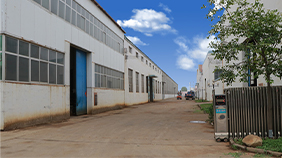
-
 Afrikaans
Afrikaans -
 Albanian
Albanian -
 Amharic
Amharic -
 Arabic
Arabic -
 Armenian
Armenian -
 Azerbaijani
Azerbaijani -
 Basque
Basque -
 Belarusian
Belarusian -
 Bengali
Bengali -
 Bosnian
Bosnian -
 Bulgarian
Bulgarian -
 Catalan
Catalan -
 Cebuano
Cebuano -
 Corsican
Corsican -
 Croatian
Croatian -
 Czech
Czech -
 Danish
Danish -
 Dutch
Dutch -
 English
English -
 Esperanto
Esperanto -
 Estonian
Estonian -
 Finnish
Finnish -
 French
French -
 Frisian
Frisian -
 Galician
Galician -
 Georgian
Georgian -
 German
German -
 Greek
Greek -
 Gujarati
Gujarati -
 Haitian Creole
Haitian Creole -
 hausa
hausa -
 hawaiian
hawaiian -
 Hebrew
Hebrew -
 Hindi
Hindi -
 Miao
Miao -
 Hungarian
Hungarian -
 Icelandic
Icelandic -
 igbo
igbo -
 Indonesian
Indonesian -
 irish
irish -
 Italian
Italian -
 Japanese
Japanese -
 Javanese
Javanese -
 Kannada
Kannada -
 kazakh
kazakh -
 Khmer
Khmer -
 Rwandese
Rwandese -
 Korean
Korean -
 Kurdish
Kurdish -
 Kyrgyz
Kyrgyz -
 Lao
Lao -
 Latin
Latin -
 Latvian
Latvian -
 Lithuanian
Lithuanian -
 Luxembourgish
Luxembourgish -
 Macedonian
Macedonian -
 Malgashi
Malgashi -
 Malay
Malay -
 Malayalam
Malayalam -
 Maltese
Maltese -
 Maori
Maori -
 Marathi
Marathi -
 Mongolian
Mongolian -
 Myanmar
Myanmar -
 Nepali
Nepali -
 Norwegian
Norwegian -
 Norwegian
Norwegian -
 Occitan
Occitan -
 Pashto
Pashto -
 Persian
Persian -
 Polish
Polish -
 Portuguese
Portuguese -
 Punjabi
Punjabi -
 Romanian
Romanian -
 Russian
Russian -
 Samoan
Samoan -
 Scottish Gaelic
Scottish Gaelic -
 Serbian
Serbian -
 Sesotho
Sesotho -
 Shona
Shona -
 Sindhi
Sindhi -
 Sinhala
Sinhala -
 Slovak
Slovak -
 Slovenian
Slovenian -
 Somali
Somali -
 Spanish
Spanish -
 Sundanese
Sundanese -
 Swahili
Swahili -
 Swedish
Swedish -
 Tagalog
Tagalog -
 Tajik
Tajik -
 Tamil
Tamil -
 Tatar
Tatar -
 Telugu
Telugu -
 Thai
Thai -
 Turkish
Turkish -
 Turkmen
Turkmen -
 Ukrainian
Ukrainian -
 Urdu
Urdu -
 Uighur
Uighur -
 Uzbek
Uzbek -
 Vietnamese
Vietnamese -
 Welsh
Welsh -
 Bantu
Bantu -
 Yiddish
Yiddish -
 Yoruba
Yoruba -
 Zulu
Zulu
best types of thread rolling machine
Best Types of Thread Rolling Machines
Thread rolling is a widely used manufacturing process that creates threads on the surface of a wide variety of materials, particularly metal. It is favored for its ability to produce strong, consistent threads while minimizing material waste. The efficiency and quality of thread rolling largely depend on the type of thread rolling machine used. In this article, we will explore the best types of thread rolling machines and their applications.
1. Flat Die Thread Rolling Machines
Flat die thread rolling machines are known for their versatility and precision. These machines use two flat dies that exert pressure on the workpiece, transforming the material into the desired thread form. They are especially suitable for producing longer threads and are commonly used for manufacturing bolts, screws, and various fasteners. The range of thread sizes created using flat die machines is broad, making them a popular choice in the industry. Additionally, because they operate at high speeds, they enhance production efficiency.
2. Circular Thread Rolling Machines
Circular thread rolling machines utilize cylindrical rollers to create threads on the workpiece. This type of machine is particularly effective for producing short and medium-length threads. Its circular design allows for uniform pressure distribution on the material, leading to high-quality threads. Circular rolling machines are often used in applications where precision is critical, such as in the automotive and aerospace industries. Furthermore, they are capable of rolling multiple parts simultaneously, which significantly boosts productivity.
3. Vertical Thread Rolling Machines
best types of thread rolling machine

Vertical thread rolling machines are designed for high-speed production and are especially advantageous when dealing with larger workpieces. The vertical orientation of the machine allows for easier loading and unloading of materials, which can significantly reduce cycle times. These machines are typically used in heavy industries to produce large bolts, nuts, and fittings. Their robust construction ensures stability during operation, accommodating the demands of high-volume production without compromising quality.
4. Hydraulic Thread Rolling Machines
Hydraulic thread rolling machines employ hydraulic systems to apply force on the workpiece, allowing for greater control over the rolling process. This type of machine is particularly suited for producing fine or complex threads, making it indispensable in industries that require precision engineering. Hydraulic machines can handle a wider range of material types and thicknesses, providing manufacturers with flexibility in their operations. They also offer programmable options, enabling customization for specific threading requirements.
5. Automatic Thread Rolling Machines
For high-volume production environments, automatic thread rolling machines are ideal. These machines are equipped with advanced controls and automation features that significantly reduce the need for human intervention. They can easily handle batch production and are capable of rolling multiple types and sizes of threads without extensive downtime. Automatic machines improve efficiency and consistency, making them an excellent investment for large-scale manufacturers.
Conclusion
Selecting the right thread rolling machine depends on various factors, including the type of materials being used, the required thread specifications, and production volume. Flat die, circular, vertical, hydraulic, and automatic thread rolling machines each have their unique benefits and applications. By understanding these options, manufacturers can make informed decisions that enhance productivity and product quality in their operations.
